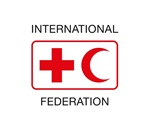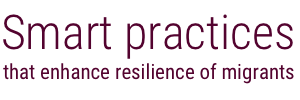A network of community interpreters provide neutral and independent support across different service areas for migrants.
The Geneva Branch of the Swiss Red Cross has a network of over 120 community interpreters who provide neutral and independent support across different service areas for migrants in Geneva Canton. The community interpreters provide translation services for migrants seeking health care, social support and education (mainly at hospitals, social services and schools). Community interpreters are professionals trained and paid per hour of service. They are required to adhere to Red Cross Red Crescent principles before being employed by the Geneva Branch of the Swiss Red Cross in order to guarantee that they do not (inadvertently or advertently) exert pressure on beneficiaries during translation.
The service enables migrants to be properly informed about their rights and duties, where they can be assisted, and where they can be accommodated. Translation also helps to provide information to help migrants integrate better. Migrants are informed of the services provided in accommodation centres, and by social workers and medical doctors.
The Foreign Language Service of the Japanese Red Cross Society provides interpretation and translation services to migrants with disabilities in the country on a voluntary basis. The programme is completely run by volunteers and has 199 members. The programme also provides translated materials for social welfare and humanitarian issues.
45,000 hours / 38,650 interventions in 2015.
Design. [P1] Focuses on the need for communication of recently-arrived migrants.
Implementation. [P6] Provides translation services for partners.
- It has been difficult to get all stakeholders to understand the value of having a network of community interpreters that can be used by all public services.
- Ensuring migrants fully understand their rights and duties; knowing social norms and how to act is a necessary condition of integration.
- Community interpreter services ensure equality of treatment and protection against discrimination.
- Community interpreters increase the efficiency of public services for migrants.
Smart practices
Smart practices report and database survey
About the report
People migrate in pursuit of a better life for themselves and their families. As described in the International Federation of Red Cross and Red Crescent Societies’ (IFRC) Policy on Migration, “migrants are persons who leave or flee their habitual residence to go to new places – usually abroad – to seek opportunities or safer and better prospects.
Read more
About the International Federation

